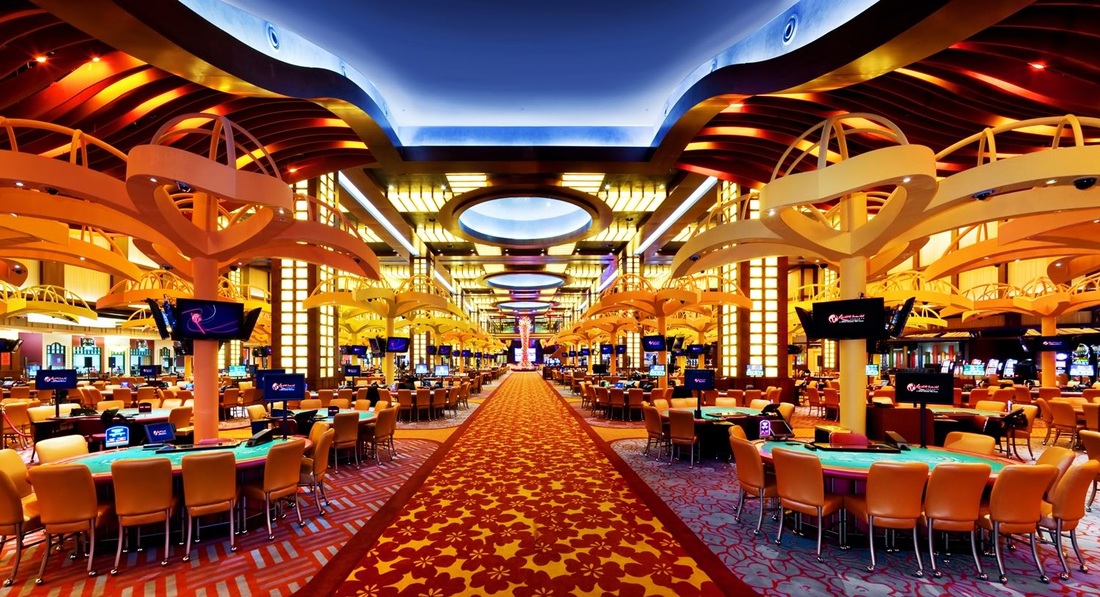The Story of Gambling: Starting in Antiquity to Modern Casino Games

Betting has been an essential part of human entertainment for thousands of years, developing through cultures and eras to become the exciting casino activities we know today. From the ancient Chinese and Romans, who participated in various forms of gambling and chance, to the sophisticated gaming floors of contemporary casinos, the attraction of risk and reward has fascinated individuals across the globe. The shift from simple dice games and rudimentary betting setups to the lavish environments of modern casinos reflects significant strides in both cultural standards and technological advancements.
As societies evolved, so too did the complexity of gambling activities, with gambling activities emerging as a unique category of entertainment and thrills. These activities have evolved from informal gatherings centered around traditional tables to grand, opulent establishments designed to lure players. Today, we explore this captivating journey, studying how traditional practices laid the groundwork for the varied and thrilling casino games that bring joy to millions worldwide.
spintax
Early Gambling Traditions
Gambling has significant roots in human past, with evidence of games of chance tracing back to ancient societies. Archaeologists have found that as far back as 3000 BC, the ancient Chinese were using basic forms of betting with dice made from ivory. Similarly, ancient cultures of Mesopotamia engaged in gambling activities, often relying on the tossing of lots or dice to determine results. These early forms of betting served not only as amusement but also played important roles in social and cultural practices.
The Egyptians also participated in gambling activities, with games that included betting on the outcomes of various events, including athletic events and religious festivals. Items such as dice and depictions of gamblers from ancient tombs demonstrate that gambling was a popular pastime. It provided both entertainment and a means of engaging in social connections, often linked to joyful occasions or major gatherings. This activity showed the universal appeal of chance and competition throughout the ages.
In ancient Rome, wagering became a commonplace practice among the populace, as evidenced by references in texts and the establishment of guidelines around certain activities. Romans enjoyed a variety of betting activities, from wagering on chariot races to playing games akin to modern-day board games. The legal framework surrounding these activities began to take shape, establishing the foundations for betting regulations that would develop in the centuries to come. The popularity of gambling during this period set the stage for the development of gambling house games in the future.
The Development of Gambling Games
Casino games have experienced significant transformations from their origins to the modern-day entertainment offerings. In historical civilizations, gaming was often associated to ceremonial practices, with dice games found in Mesopotamia and wagering on the outcomes of events in ancient Rome. These primitive forms of gambling laid the groundwork for the structured games we see today. The change from informal gambling to regulated games happened as societies began establishing rules and venues for wagering, demonstrating cultural values and practices.
The Middle Ages saw the rise of card games, which gained fame among European nobility. Games like primero and baccarat became essential components in social gatherings. The development of printing technology also facilitated the spread of playing cards, making them more available to the common people. As gambling houses began to proliferate, these card games transformed into variations that appealed to wider audiences, eventually leading to the founding of casinos as dedicated venues for gaming.
The 20th century marked a significant point in the progression of casino games, with the rise of commercial casinos in Las Vegas and other gambling hotspots. This era brought forth games like video slots and modern versions of table games, complete with sophisticated graphics and complex betting structures. The introduction of online casinos in the late 1990s also changed the gaming industry, allowing players to access a great variety of casino games from the convenience of their homes. pg88 Today, casino games persist to progress, blending classic elements with cutting-edge technology to create engaging experiences for players worldwide.
Contemporary Gambling Regulations
In these years, the landscape of gaming laws has developed considerably, notably as technology and internet-based gambling have become increasingly prevalent. Regulatory bodies around the world have enacted multiple laws and guidelines to make certain that gaming activities are carried out fairly, responsibly, and openly. These laws often include factors such as licensing, advertising, player safeguards, and sensible gambling measures. Authorities aim to minimize problems such as problem gambling and fraudulent activities while supporting a equitable gaming environment.
The rise of internet casinos has required a different approach to oversight. Many jurisdictions have set up specific online gambling structures that serve internet-based gaming, allowing operators to offer their offerings within the law. These structures often demand operators to obtain licenses, follow strict security protocols, and offer customer support options to help players. By closely monitoring internet activities, regulators can better protect consumers from potential harm and make sure that gambling is carried out in a secure manner.
Moreover, contemporary gambling regulations are progressively focusing on sensible gambling initiatives. Many casinos and internet-based platforms now adopt features such as self-exclusion, deposit limits, and time-outs to help players manage their gambling habits. Educational campaigns aimed at raising awareness about the risks of gaming are also frequent. As the sector continues to grow, the focus on sensible gambling remains a cornerstone of governing efforts, showing a commitment to promoting a safe and pleasant gambling experience for all players.
